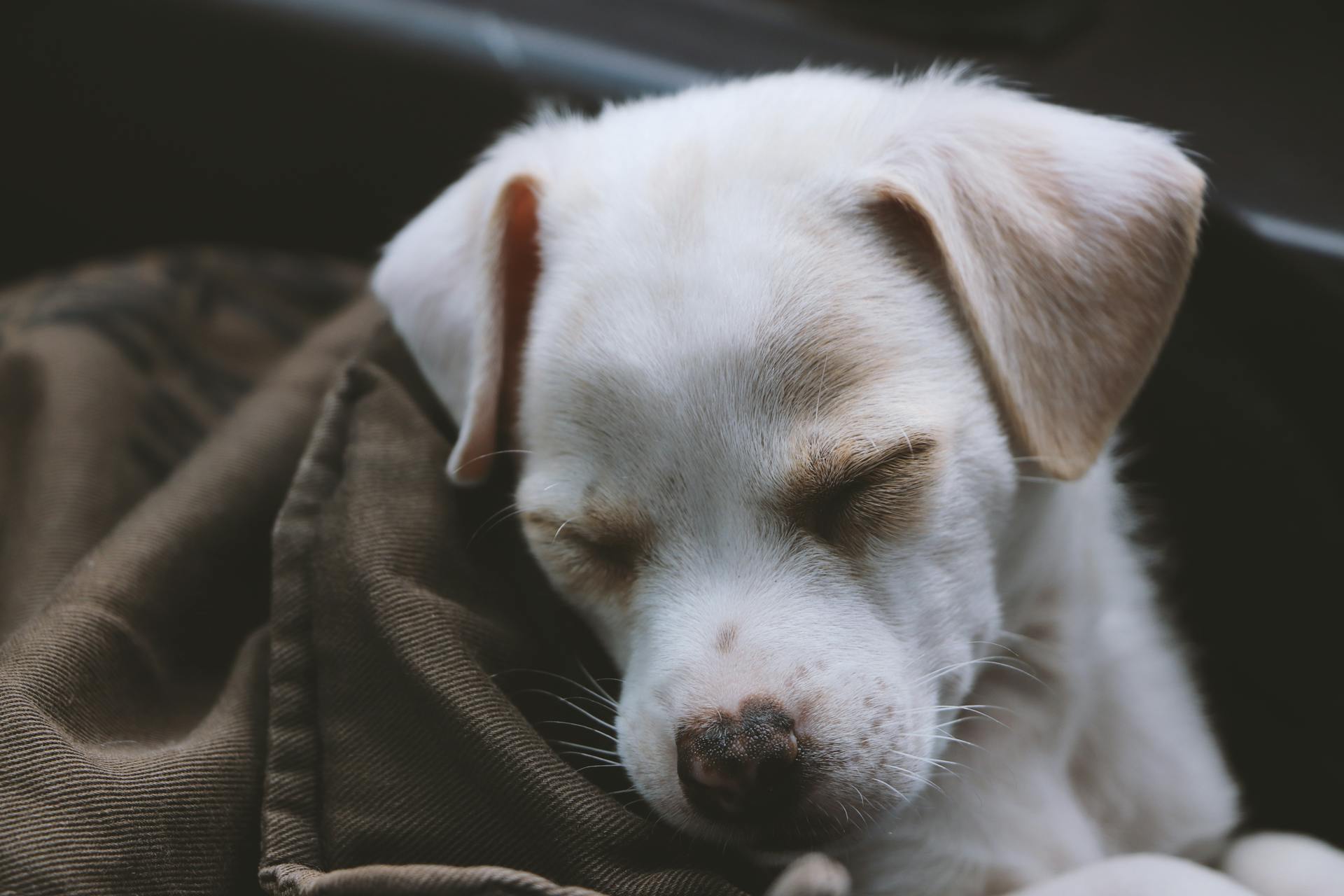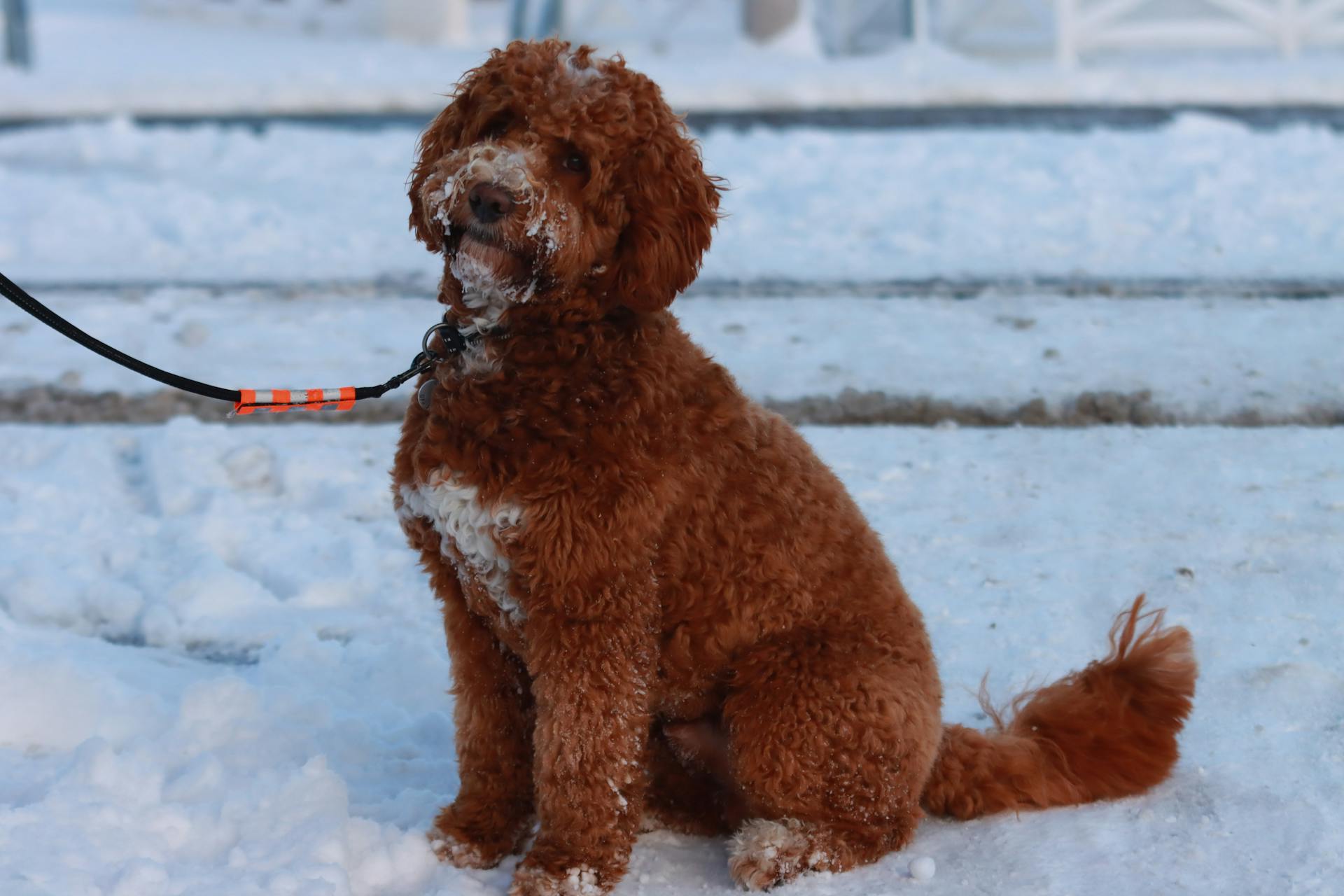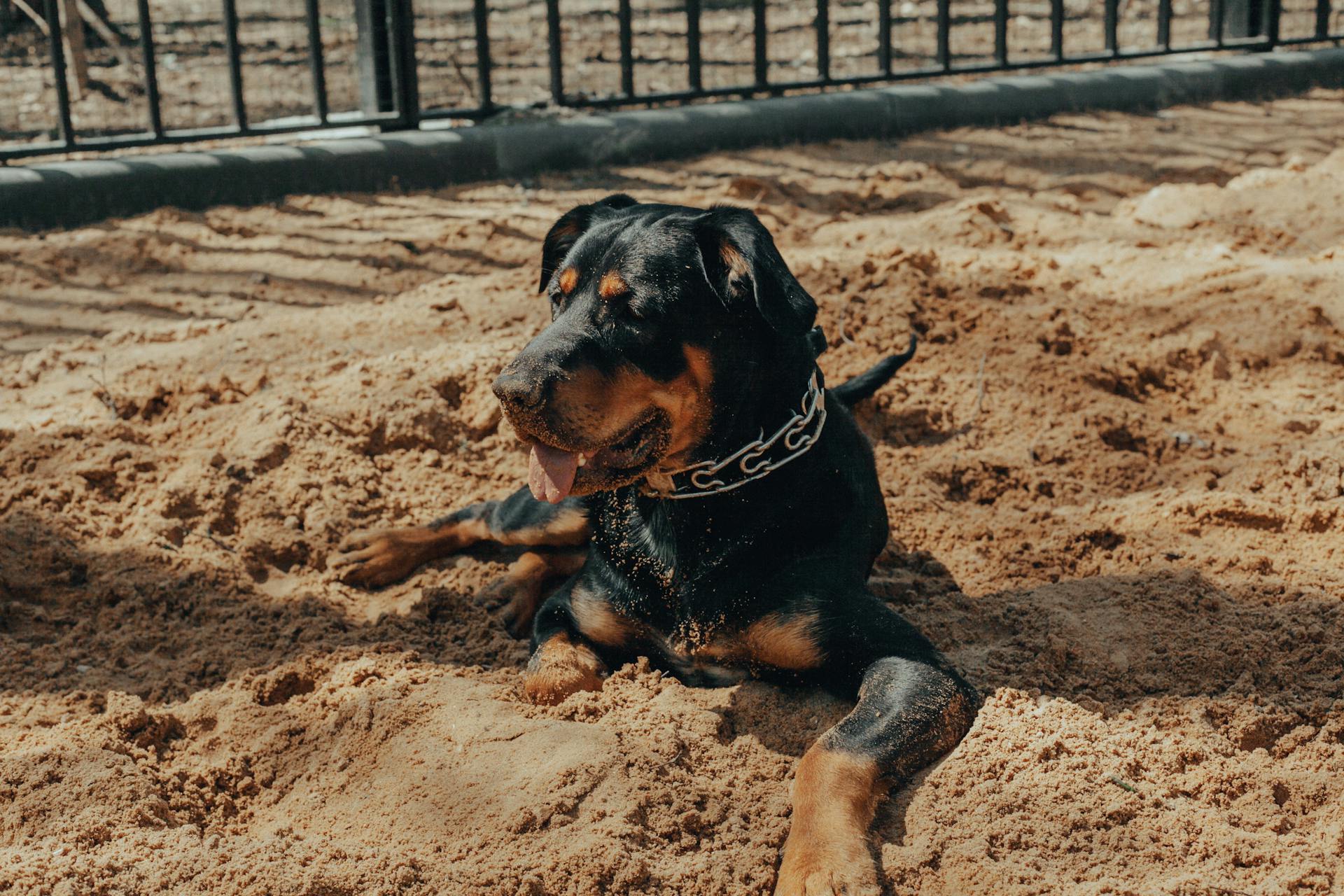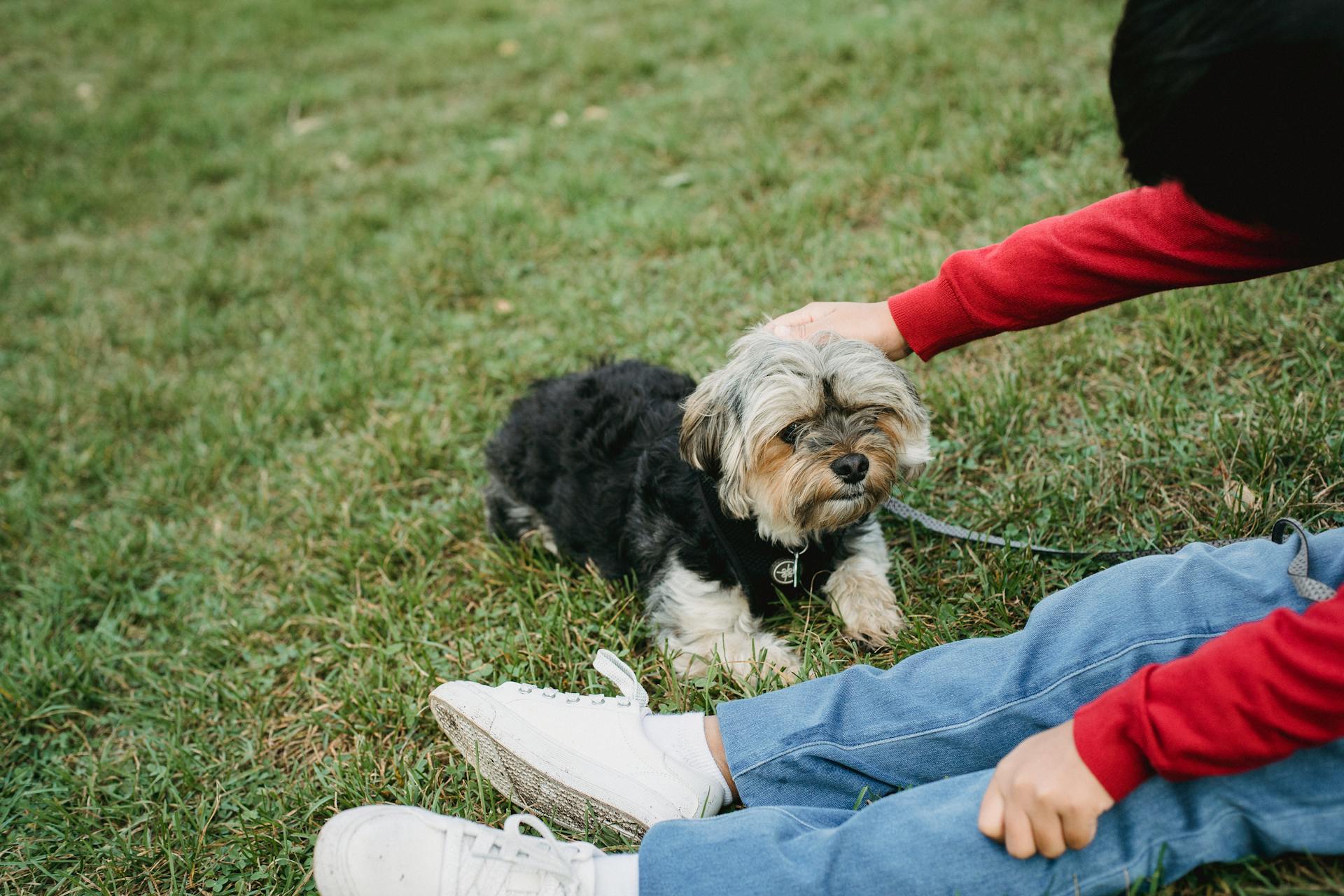
Yorkshire Terriers, or Yorkies as they're affectionately known, have a rich history that dates back to the mid-19th century.
Originally bred in Yorkshire, England as ratters in cotton mills, these tiny dogs were known for their big personalities and ability to catch rodents.
Their small size, weighing in at just 7 pounds, belies their bold and confident nature.
Yorkies were first recognized as a distinct breed by the American Kennel Club in 1885.
History of Yorkshire Terriers
The Yorkshire Terrier's origins are fascinating. These dogs were brought to England by Scottish weavers during the Industrial Revolution.
They were initially used as rodent control in textile factories in Yorkshire and Lancashire. By the mid-1800s, they had been crossbred with local dogs, giving rise to a new breed.
The Yorkshire Terrier's popularity soared in the late 1800s, with them becoming a staple in the show ring and a fashionable lapdog among Victorian socialites. Today, they remain a beloved companion dog.
The breed originated in Yorkshire, where Scottish workers brought their terrier dogs in search of work. The mill operatives who bred the Yorkshire Terrier were mostly unaccustomed to sharing information, making it challenging to gather reliable facts about the breed's early history.
The breed's development is attributed to several key dogs, including Old Crab, Kitty, and a female whose name is not known. The Paisley Terrier, a smaller version of the Skye Terrier, also played a significant role in shaping the breed.
Huddersfield Ben, a renowned Yorkshire Terrier, is often referred to as the "father of the breed." His portrait was painted by George Earl, and his bloodline has contributed to many show-winning specimens.
Traits and Characteristics
Yorkshire Terriers are feisty, confident, and affectionate dogs that love spending time with their owners. They're generally friendly but can be wary of strangers.
Yorkies are known for their dainty appearance and long, silky coats that can reach floor-lengths if not trimmed. Their most prominent feature is their luxurious coat, which is often compared to human hair rather than traditional dog fur.
Here are some key traits of a Yorkshire Terrier:
- Feisty and confident
- Affectionate and loving
- Generally friendly but can be wary of strangers
- Brave and won't back down from a fight
- Boisterous and bossy at times
- Tend to bark a lot
Remember, every dog is unique, and these traits can vary depending on the individual Yorkie.
Coat
The Yorkshire Terrier's coat is truly one of its most distinctive features.
The American Kennel Club places importance on coat colour, quality, and texture.
For adult Yorkshire Terriers, the hair must be glossy, fine, straight, and silky.
The hair of the Yorkshire Terrier can be used to determine content of metals in the dog organism.
The coat should be a dark grey to a black colour from the back of the neck to the base of the tail, and the hair on the tail should be a darker black.
On the head, high chest, and legs, the hair should be a bright, rich tan, darker at the roots than in the middle, that shades into a lighter tan at the tips.
The fine, straight, silky coat is considered hypoallergenic.
Curious to learn more? Check out: Tan Yorkshire Terrier
A silver-blue and pale cream Yorkshire Terrier, with characteristic long hair, is a beautiful example of the breed's coat.
Adult Yorkshire Terriers whose coat colours deviate from the standard are still Yorkshire Terriers, but it's not recommended to intentionally breed atypical Yorkshire Terriers.
The long coat on the Yorkshire Terrier requires regular brushing.
- A silver-blue and pale cream Yorkshire Terrier, with characteristic long hair
- A silver-blue and pale cream Yorkshire Terrier.
- A Yorkshire Terrier with a dark coat
- Golden Yorkie, judged as miscolour in normal Yorkshire breeding.
Traits and Characteristics
Yorkshire Terriers are a toy breed, known for their small size, typically weighing between 5 to 7 pounds and standing between 7 to 8 inches tall.
Their unique appearance is characterized by a bicolor coat, with variations of black or blue mixed with gold or tan, and dark brown eyes.
Yorkies have a long, silky coat that can reach floor-lengths if not trimmed, requiring regular grooming to prevent matting and tangling.
Their expressive eyes and delicate features make them a beloved companion for many dog owners.
Yorkshire Terriers are known for their confident and affectionate nature, making them great companions for those living alone or with older children.
A fresh viewpoint: Yorkshire Terrier Eyes
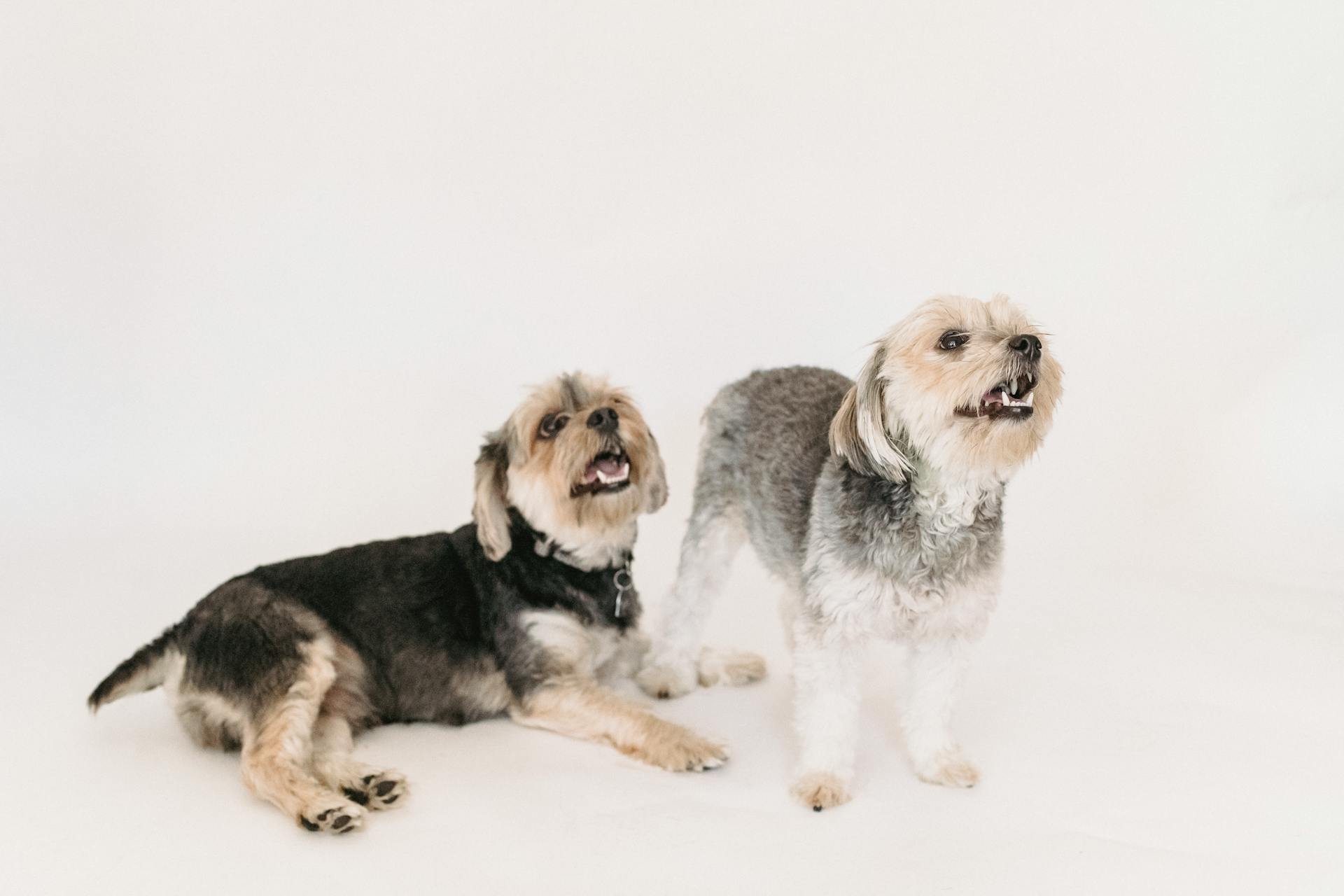
They are intelligent and curious, requiring plenty of playtime and mental stimulation to prevent boredom and destructive behavior.
One of the most prominent features of a Yorkshire Terrier is their luxurious coat, which can be high maintenance but is also a defining characteristic of the breed.
Their hunting instinct and bold, fearless nature make them a great breed for families with older children who are taught how to interact with them correctly.
Here are some common health issues that can affect Yorkshire Terriers:
- Collapsing Trachea
- Luxating Patella (dislocated kneecap)
- Portosystemic Shunt (liver shunt)
- Legg-Calve-Perthes disease (degenerative disorder of the hip)
- Pancreatitis
- Hypoglycemia
- Hemorrhagic Gastroenteritis (severe vomiting and diarrhea)
- Cataracts
- Glaucoma
- Keratoconjunctivitis Sicca (tear deficiency causing dry eyes)
- Dental Disease
- Obesity
These health issues can be prevented or managed with proper care and attention to their needs, including regular veterinary check-ups and a balanced diet.
Intriguing read: Dogs Breeds That Start with B
Living with a Yorkshire Terrier
Yorkshire Terriers are intelligent and curious, so they need puzzle toys to keep them engaged. Their big personalities can also come with a lot of barking, as they're vigilant and vocal dogs.
Training can help curb excessive barking, but many Yorkies will still bark fairly frequently, it's just in their nature. They're naturally alert to any and all threats, whether real or not.
You might enjoy: Yorkshire Terrier Barking
Yorkshire Terriers come with a unique set of challenges due to their small size. They can easily become injured during play or nip at children or other dogs that don't understand how overwhelming they can be.
To protect your Yorkie, never leave them unattended outside, especially in areas with coyotes. A coyote protection vest can also be a good idea, as it has outer spikes to prevent coyotes from picking up small dogs.
Temperament & Personality
Yorkshire Terriers are known for their bold and feisty personalities, which makes them a great companion for older gentle children and elderly people. They're also high-energy dogs that require regular exercise to keep them happy and healthy.
One thing to keep in mind is that Yorkies can be stubborn at times, but they can learn quickly if they decide to cooperate. This means that with patience and consistency, you can teach your Yorkie all sorts of fun tricks and commands.
Despite their small size, Yorkies are naturally alert and vociferous watchdogs, always ready to bark and alert you to potential threats. However, it's worth noting that they're not very effective at protecting their owners, so you'll still need to take other measures to keep your home and family safe.
If you're thinking of getting a Yorkie, it's essential to introduce them to other pets, especially small ones, from a young age. This will help them learn to coexist peacefully and avoid any potential conflicts. With proper socialization, Yorkies can get along well with other dogs and cats, but it's still crucial to supervise interactions between them.
In terms of their energy levels, Yorkies are naturally playful and love to be part of the action. They're perfect for families with older children who can keep up with their energetic antics. However, young children may accidentally upset these small dogs, so it's essential to teach them how to handle Yorkies gently and respectfully.
Here are some key characteristics of Yorkshire Terrier temperament and personality:
- Assertive and playful, but still love to be around people
- Fun, feisty, and love to chase!
- Better suited to families with older children
- Happy to live with other dogs and cats if introduced correctly from a young age
- Should be watched around small pets as they are hardwired to chase
Frequently Asked Questions
What are some interesting facts about Terriers?
Terriers are small, lean dogs with a low-maintenance coat and distinctive features like a long head and deep-set eyes. Known for their vocal nature and energetic personalities, they're a fascinating breed with a rich history and diverse origins.
Featured Images: pexels.com
